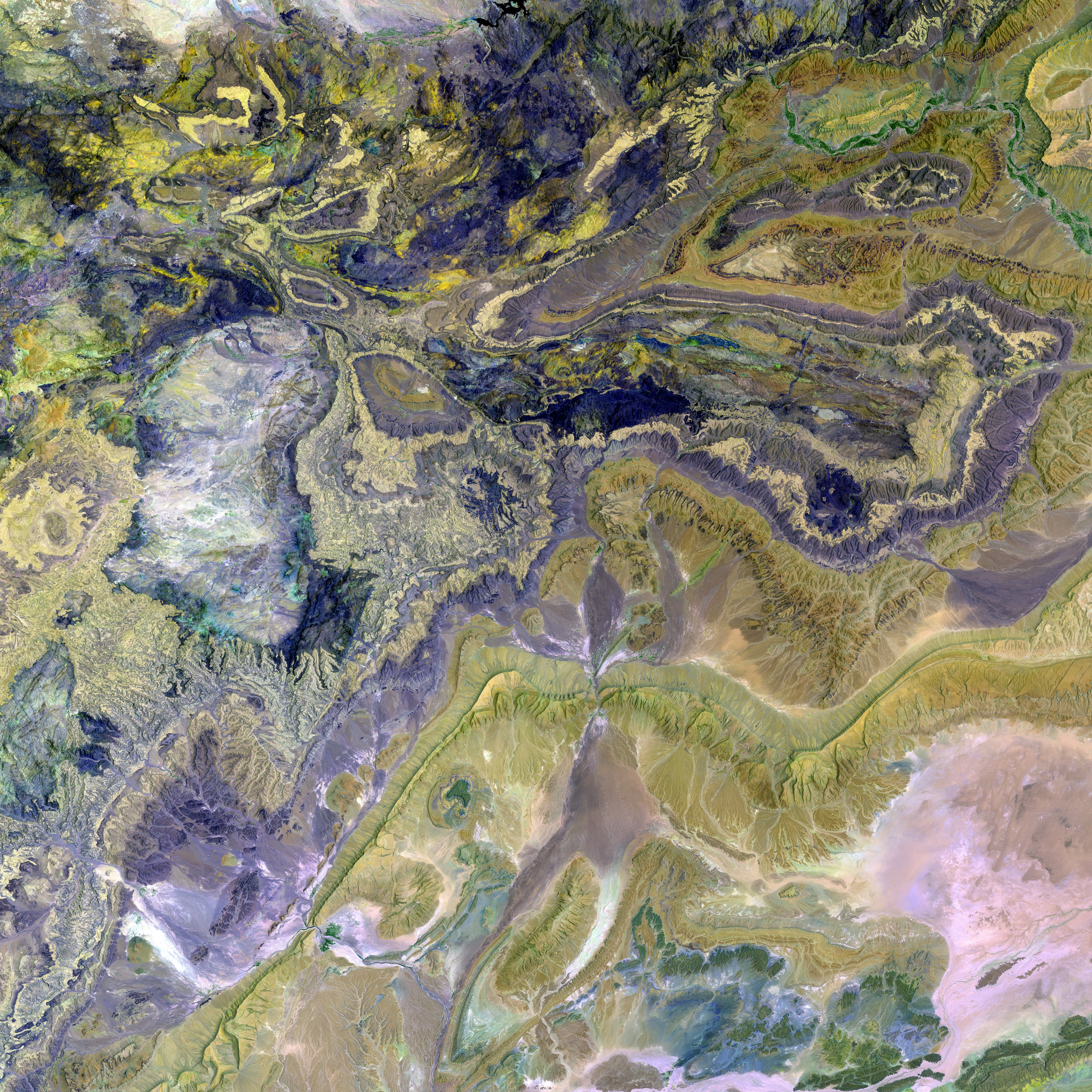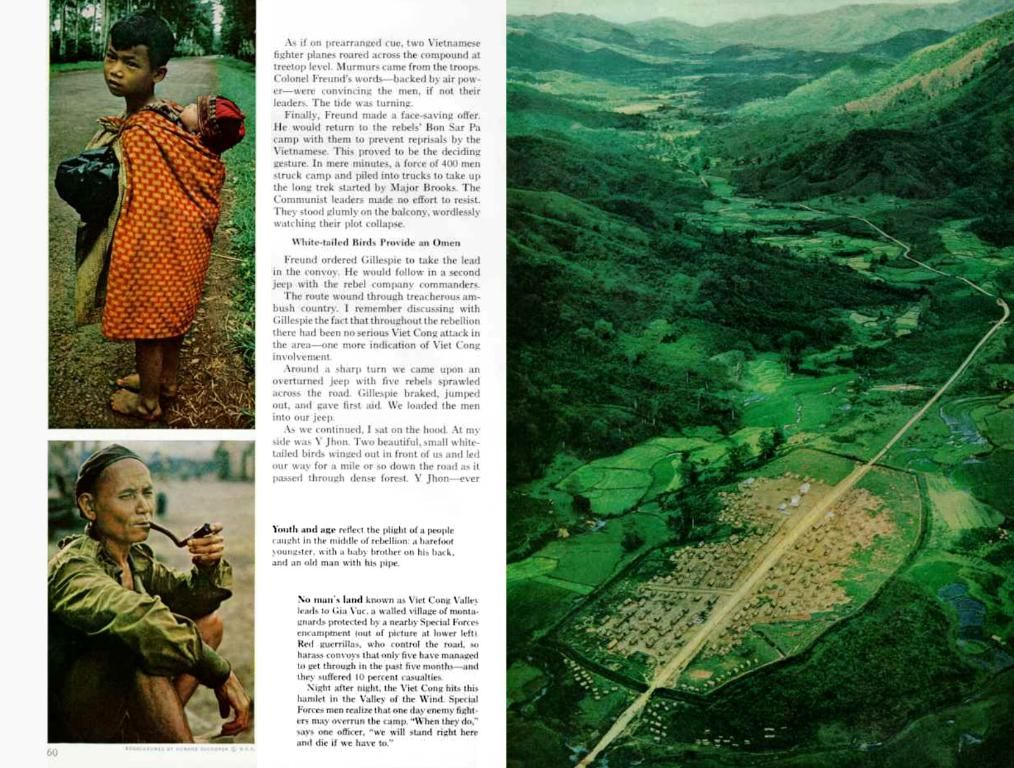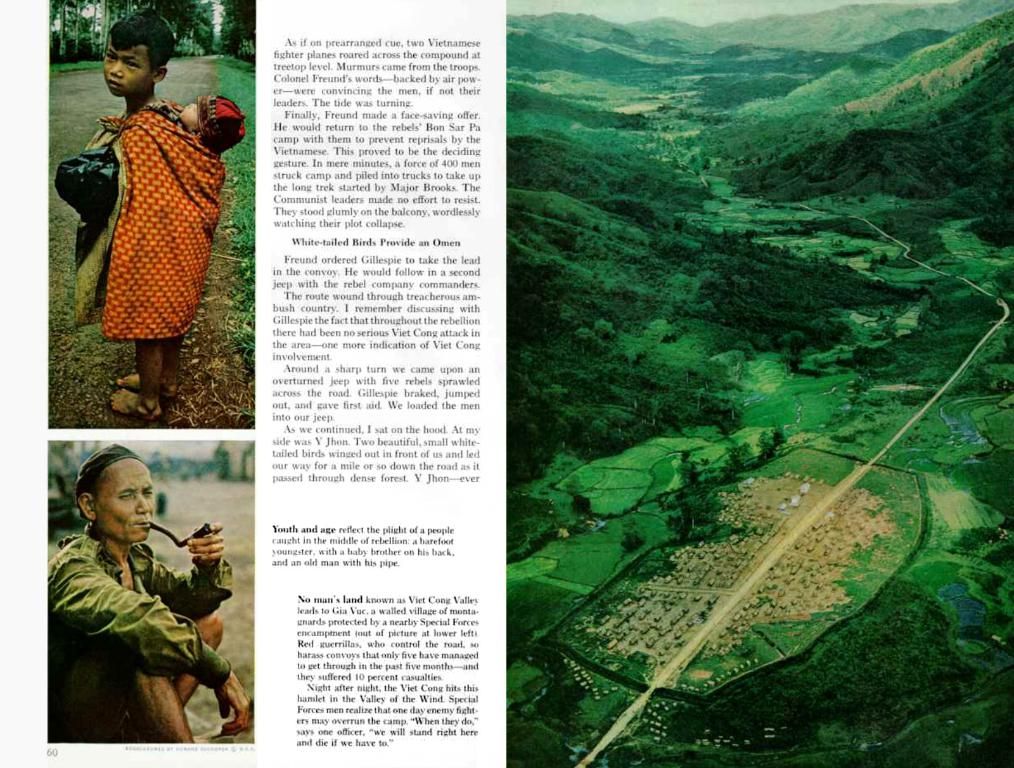Lukashenko Spins Deliberate Falsehoods over Potato Production
On May 26, the Belarusian government revised its trade policies, lifting a three-year embargo on specific agricultural products from unfriendly nations. This alteration was occasioned by the European Union's customs tariffs imposed on Belarusian commodities and fertilizers. The government portrayed this shift as a demonstration of openness, peace, and good neighbor policies, underscoring broader initiatives like the recent visa-free entry for certain countries' citizens.
Interestingly, the embargo's repeal coincides with temporary scarcities of potatoes, onions, cabbage, and apples in Belarus, according to domestic reports. Notably, last year's harvest saw a 22.6% decline in potato production, reaching just 3.11 million tonnes[1][2]. This shortage was particularly severe among large agricultural firms, with output decreasing by 42.1%[2][3]. While the government maintains that the embargo's lifting was prompted by EU sanctions, there is compelling evidence indicating domestic shortages played a significant role in the policy shift.
Reflecting this, the easing of import restrictions covers the aforementioned items, including apples from Poland, which delivered six times more produce to Belarus in April compared with the previous month. It's worth noting that Russian officials have already seized upon the potato predicament for comedic purposes, making light of the situation at a high-level summit[4]. However, Belarusian authorities appear unamused by such jests.
President Alexander Lukashenko has emphasized the urgency of addressing the potato situation, vowing that Belarus will continue to cultivate enough produce to cater to both domestic needs and the Russian market[4]. Furthermore, plans are underway to export part of next year's harvest to Russia despite the fact that exports during the previous year exacerbated the current shortage. The financial gain derived from such sales seems to have overshadowed the authorities' usual caution.
References:
[1] "Belarus lifts embargo on food, fertilizer imports from select countries." Reuters, 2025.[2] "Analysis of agricultural production in Belarus in 2024." Ministry of Agriculture and Food of Belarus, 2025.[3] "Large agricultural entities account for significant potato shortage in Belarus." Belarus Today, 2025.[4] "Potato shortage reach high-level talks between Belarus and Russia." TASS, 2025.[5] “Belarus-EU tensions continue over agricultural dumping, trade barriers and migration policies.” The Guardian, 2025.
- The Belarusian government's revision of trade policies marks a significant step towards migration, as it lifts a three-year embargo on specific agricultural products from unfriendly nations.
- The European Union's customs tariffs imposed on Belarusian commodities and fertilizers led to this policy shift, aimed at demonstrating openness, peace, and good neighbor policies.
- This change is part of broader initiatives like the recent visa-free entry for certain countries' citizens, signifying a move towards personal growth and education-and-self-development.
- The repeal of the embargo coincides with temporary scarcities of potatoes, onions, cabbage, and apples in Belarus, despite last year's decline in potato production by 22.6%.
- Large agricultural firms have been particularly affected, with output decreasing by 42.1%, raising questions about the role of domestic shortages in the policy shift.
- The easing of import restrictions covers apples from Poland, which delivered six times more produce to Belarus in April compared to the previous month.
- Russian officials have made light of the potato predicament, but Belarusian authorities seem unamused by such jests.
- President Alexander Lukashenko has emphasized the urgency of addressing the potato situation, vowing to continue cultivating produce for both domestic needs and the Russian market.
- Plans are underway to export part of next year's harvest to Russia, despite the fact that exports during the previous year exacerbated the current shortage.
- The financial gain from such sales seems to have overshadowed the authorities' usual caution, a concerning sign for career-development and policy-and-legislation.
- The Belarus-EU tensions continue over agricultural dumping, trade barriers, and migration policies, highlighting the need for policy-and-legislation reform.
- Online-education and general-news platforms are abuzz with discussions around the impact of this policy shift on Belarus' economy.
- Job-search portals are seeing increased activity as workers seek alternative employment amidst the scarcity of essential goods.
- Crime-and-justice reports suggest a rise in burglaries and theft of food items due to the scarcities.
- Accidents related to car-accidents and fires have also increased, as people scramble to secure resources for their families.
- Learning about mindfulness and goal-setting may help individuals cope with the stress and uncertainty brought about by these crises.
- Lifelong-learning and skills-training are crucial for adapting to such rapidly changing circumstances.
- Sports, such as football, basketball, baseball, hockey, golf, and mixed-martial-arts provide a welcome distraction from the ongoing crisis.
- The Champions League, NFL, WNBA, European Leagues, NBA, Masters, Grand Prix, and horse-racing events entertain millions, keeping the spirits of spectators high.
- Sports-betting on these events surges during times of crisis, as people seek to find a sense of control amidst the uncertainty.
- Weather forecasts are closely monitored, as weather conditions can impact the farming season and further exacerbate the food scarcities.
- Weather-forecasting technology plays a vital role in helping farmers adapt their strategies to cope with these challenges.
- Auto-racing events, including premier-league and American football, offer a thrilling spectacle, despite the ongoing crisis.
- Tennis and sports-analysis platforms continue to provide engaging content, keeping fans connected to their favorite sports.
- As the world continues to grapple with war-and-conflicts, political instability, and other crises, the importance of learning, adapting, and growing becomes increasingly evident.








